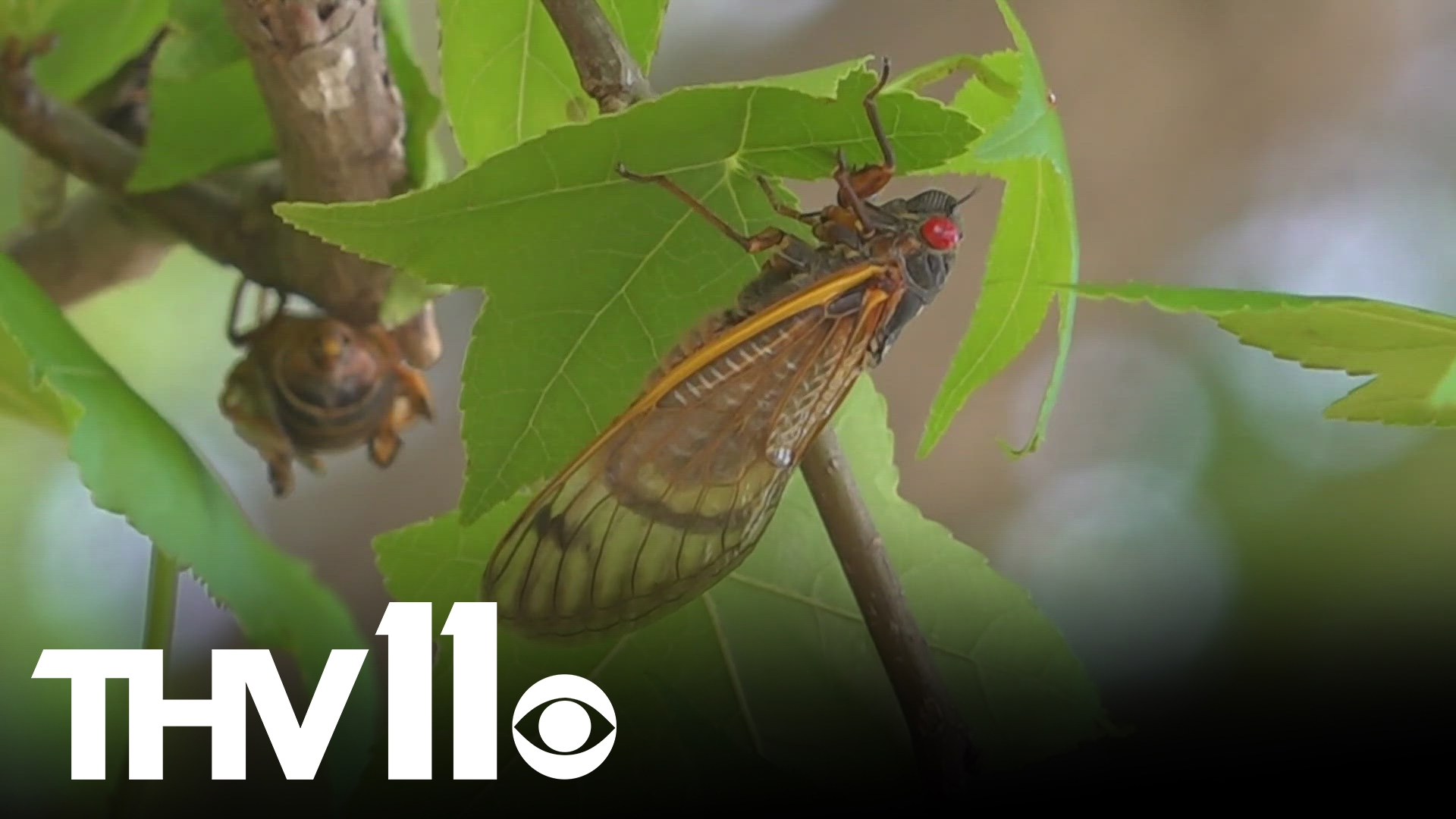LITTLE ROCK, Ark. — The singing cicadas have arrived in Arkansas for the first time in several years.
While their songs often raise complaints, Arkansans will hear the chorus of a singing cicada for the next month or so.
“They’re some of the largest insects we have here,” Entomologist Jon Zawislak said. “They are definitely some of the loudest insects.”
A historic event is occurring throughout much of the country. The largest brood of 13-year-old cicadas is appearing, along with another group that surfaces every 17 years through June of this year.
"They're going to be serenading us for the next few weeks,” Zawislak said. “It's an amazing phenomenon, and this group of cicadas crosses about 15 or 16 different states.”
Zawislak said the singing cicadas are emerging from states like Iowa and Maryland and are coming down to the Natural State.
"We have plenty of trees in Little Rock and all around,” Zawislak said. “We're definitely going to see them here, but not as many as in other parts of the state.”
These insects seek one thing in particular–singing to attract a mate.
However, it may be hard to tell exactly where their sound is coming from because the action happens in the treetops. That high up, they're separated from the vast array of predators that see them as a snack.
"They come out, and they've got one thing on their mind: to make more cicadas,” Zawislak said. "They serve as a tremendous food source; everything eats cicadas.. they're not going to be around very long."
Although the cicada’s life after their decade-long wait may end quickly, Zawislak said they play a vital role in the environment.
"They create a nice layer of fertilizer on the ground that's going to go back into the trees and help raise another generation of cicadas,” Zawislak said. “It’s all part of the beautiful cycle that is mother nature."
Zawislak encourages Arkansans to remember the nature of their mating calls when hearing their loud synchronized symphony.

